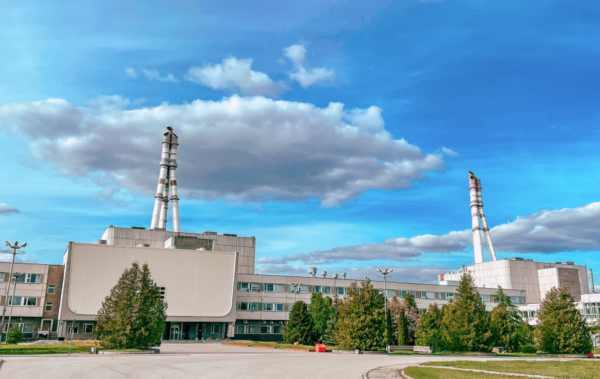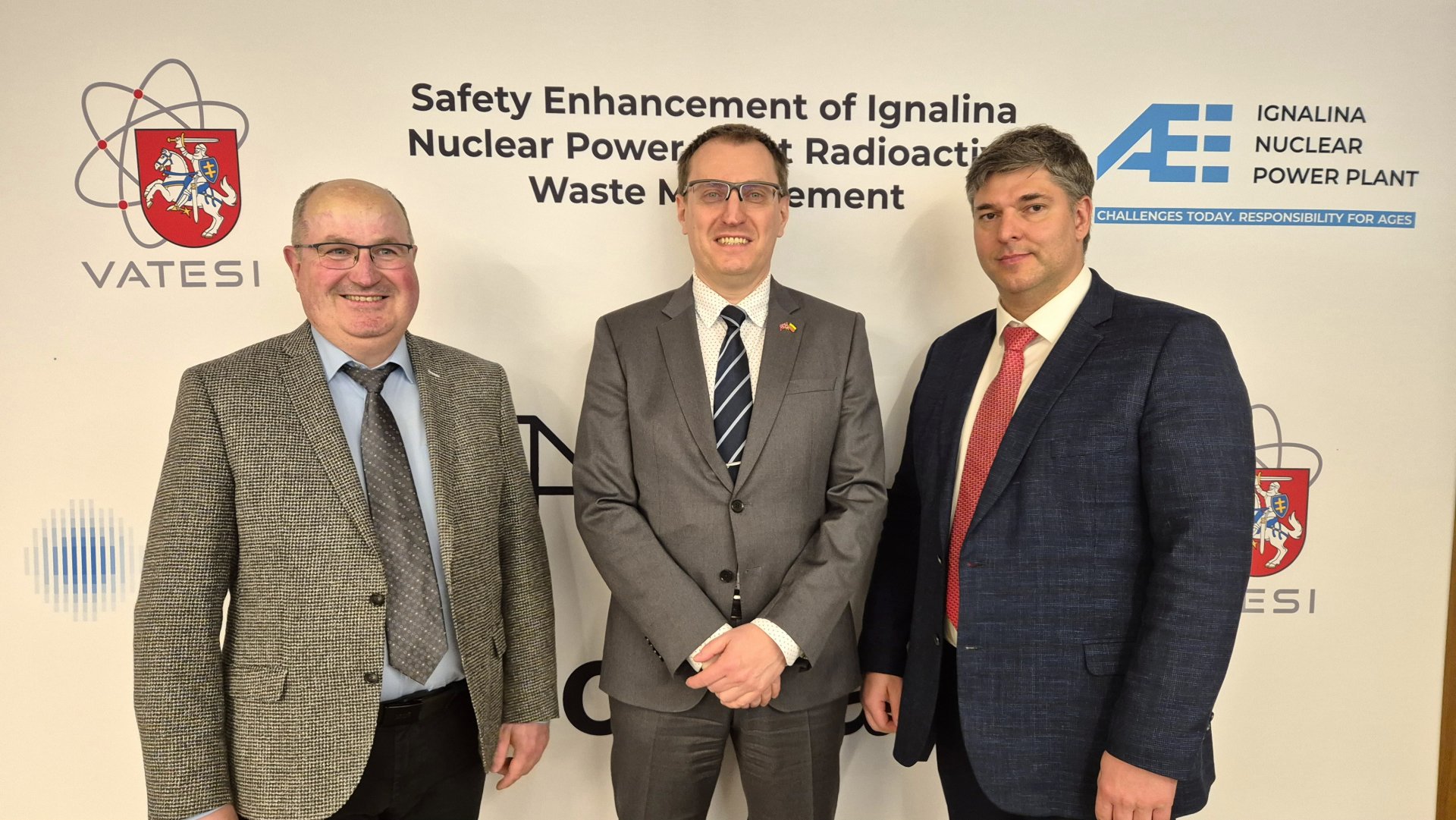Decommissioning of the Ignalina NPP: a unique international project completed
2024

During the decommissioning of the Ignalina Nuclear Power Plant (INPP), particular attention is paid to the safe management of various types of radioactive waste. Furthermore, such projects are also supported by international programmes. The project "Enhancing the safety of radioactive waste management at the INPP", which was largely financed by the Norwegian Financial Mechanism, has been completed.
The project, which commenced at the end of 2020, sought to enhance the management, control, and prevention systems for nuclear decommissioning, thereby reducing the adverse effects on the environment, the ecosystem, and the population. It has successfully completed several significant tasks, including the development of concepts for a bituminous waste repository and a Deep Geological Repository (DGR), as well as upgrading the qualifications of personnel.
The project was supported by a number of institutions, including the State Nuclear Energy Safety Inspectorate (VATESI), The Norwegian Radiation and Nuclear Safety Authority (DSA), the Central Project Management Agency (CPMA), the International Atomic Energy Agency (IAEA) and others. The total value of the implemented activities was in excess of €3 million, with 85% of this amount derived from the Norwegian Financial Mechanism.
Andrius Vyšniauskas, Head of the INPP Project, asserts that the completion of this complex international project represents a significant milestone in the history of the INPP and an exemplification of the company's core mission.

"One of the enterprise's strategic objectives is to manage radioactive waste in a safe manner, thereby ensuring that future generations are not burdened with an unreasonable responsibility for radioactive waste management. This project has addressed unique problems related to radioactive waste management that are not unique to Lithuania." At the same time, the project offered an exceptional opportunity to enhance knowledge and expertise in the decommissioning of nuclear energy facilities," states A. Vyšniauskas.
These long-term goals are in line with the Norwegian Financial Mechanism's motto - "Together for a green, competitive and inclusive Europe". The project will play an important role for many years to come, not only for the INPP, the local community and Lithuanian society, but also for all people who want to live in a safe and clean environment.
The responsible management of radioactive waste - a priority for the INPP
One of the tasks of the project was the conversion of a bituminous radioactive waste repository. The repository was commissioned at the Ignalina NPP in 1987. The 5600 square metre building contains 14,400 cubic metres of bituminous compound, i.e. bituminous radioactive evaporated salts. The project analysed the possibility of converting the bituminous waste storage complex into a repository.
The project also included the development of a methodology for the removal of radiation from the industrial waste landfill and a research programme for the landfill, as well as engineering geological and radiological studies. From 1985 to 2015, the industrial waste landfill contained mixed construction and demolition waste, various packaging materials, discarded equipment parts and biodegradable waste. Over 30 years, more than 30,000 cubic metres of waste has accumulated. The results of the research will allow the landfill to become a conventional landfill.
A particularly important part of the project was the development of a concept for a deep geological repository (DGR) for radioactive waste. In Lithuania, the DGR will be an engineered structure several hundred metres underground for the safe disposal of long-lived radioactive waste generated during the operation of INPP (1983-2009) and its decommissioning (until 2038).
In Lithuania, the construction and commissioning of the DGR is planned for 2068. A site for its installation is expected to be approved by 2047. Until then, the concept will be adjusted according to the progress of the project development.
Considering the unique challenges faced during the decommissioning of the INPP, the project has become a unique opportunity to seek cooperation in improving knowledge and expertise in the decommissioning of nuclear power plants. During the workshops, specialists and experts from Sweden, Slovakia, Finland, and Spain shared their knowledge on deep repository installation, decommissioning process management, waste management, and chemical, radioactive and nuclear analytical techniques.
These competence improvement activities were attended not only by Ignalina NPP personnel, but also personnel from the State Nuclear Safety Inspectorate (VATESI) and the Norwegian Radiation and Nuclear Safety Authority (NRSA). A total of 124 people attended the seminars and improved their qualifications.

